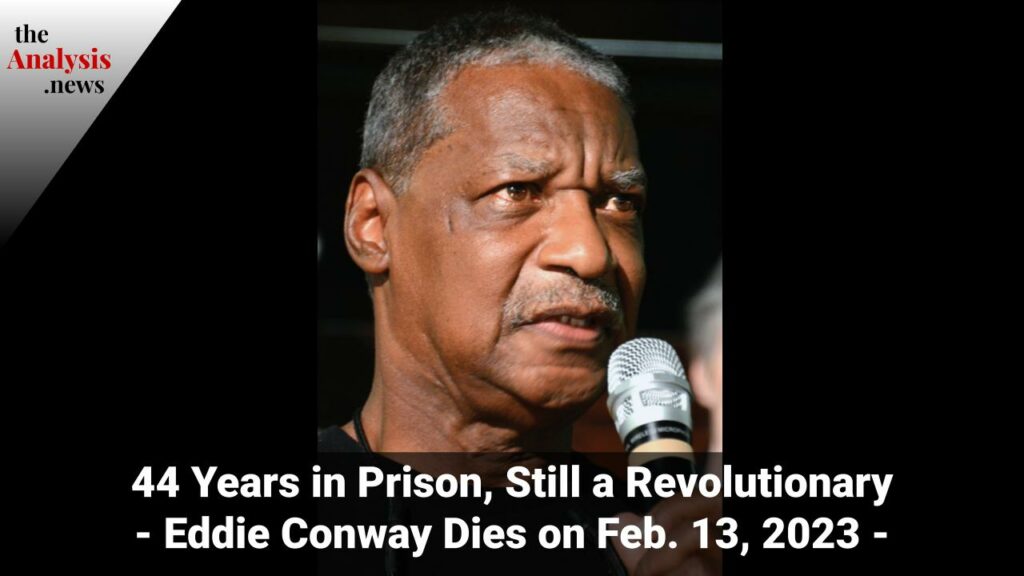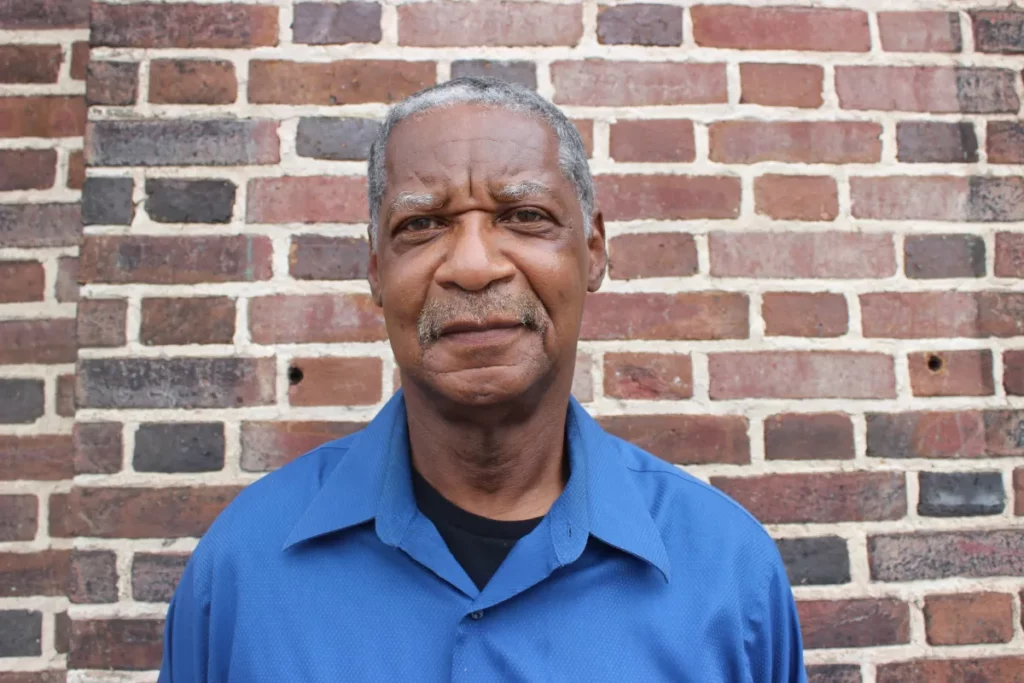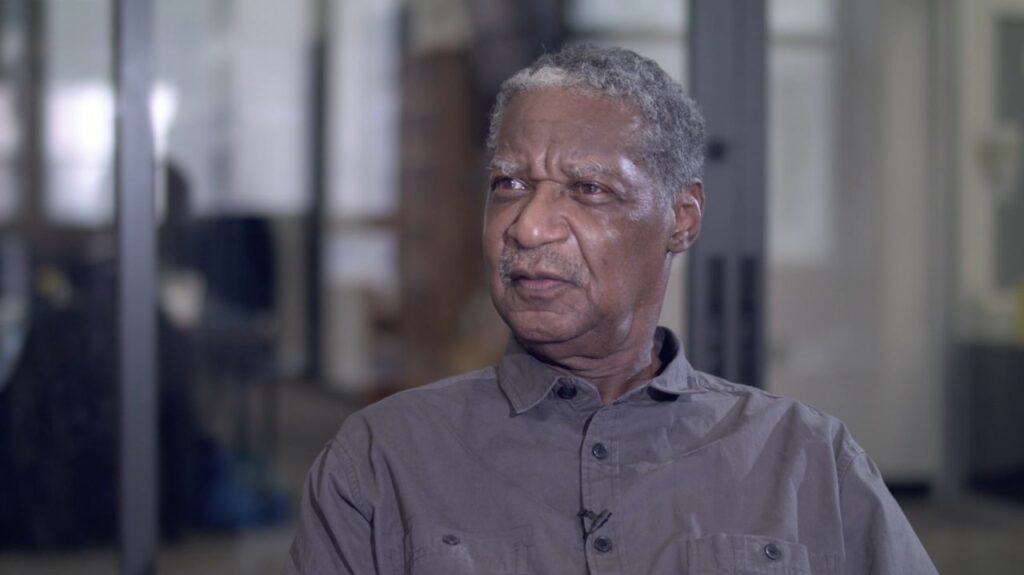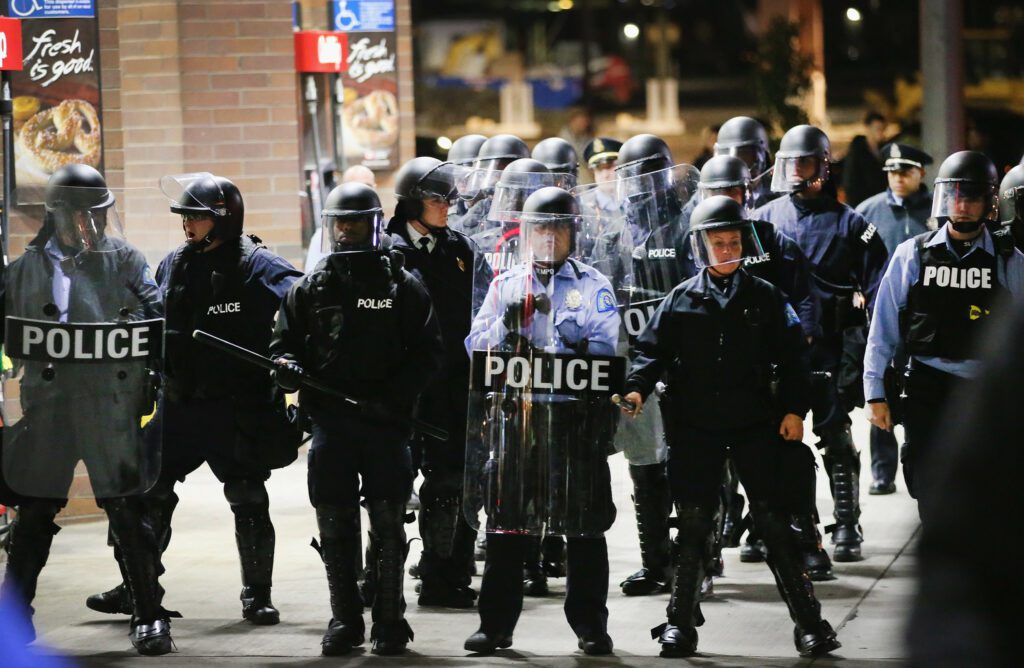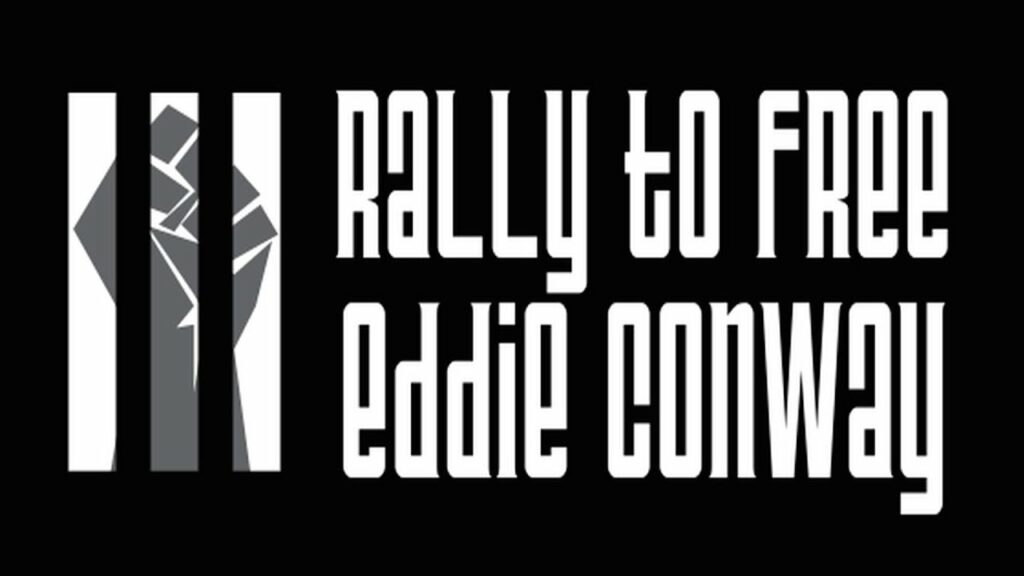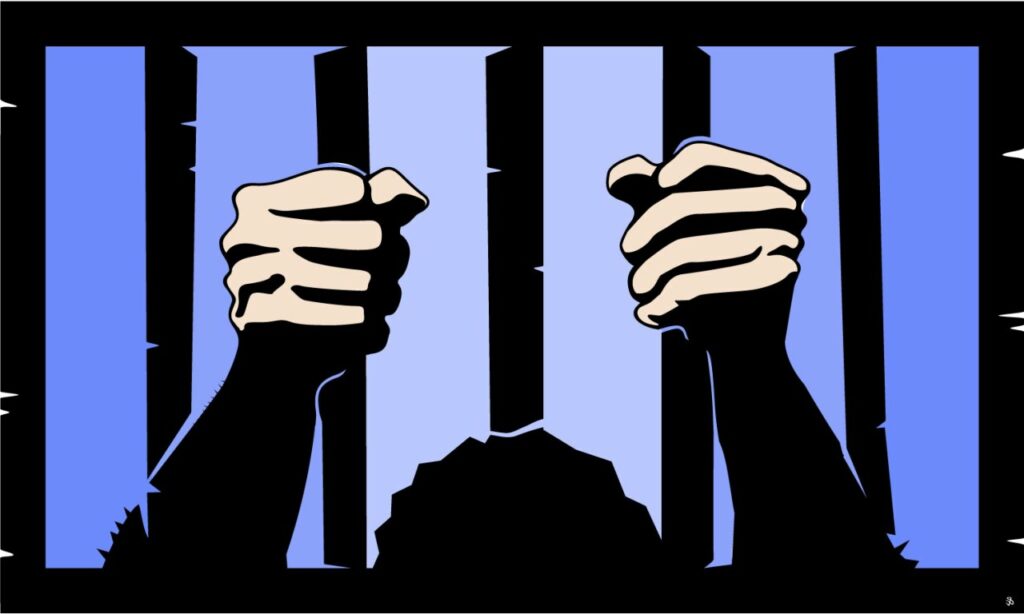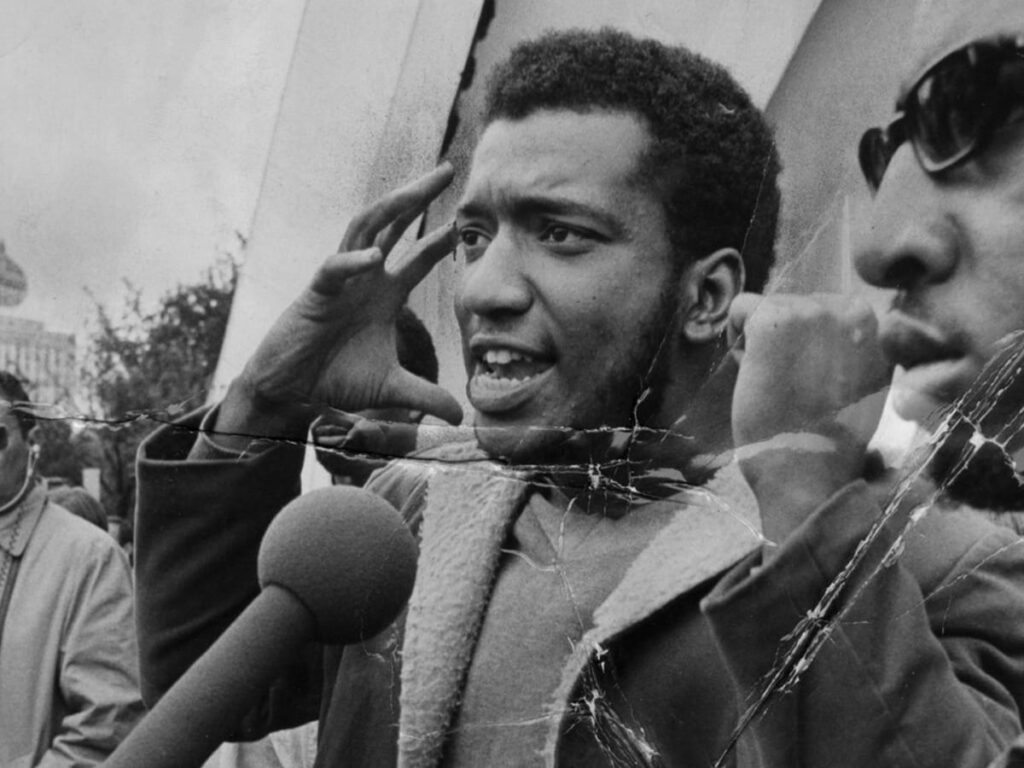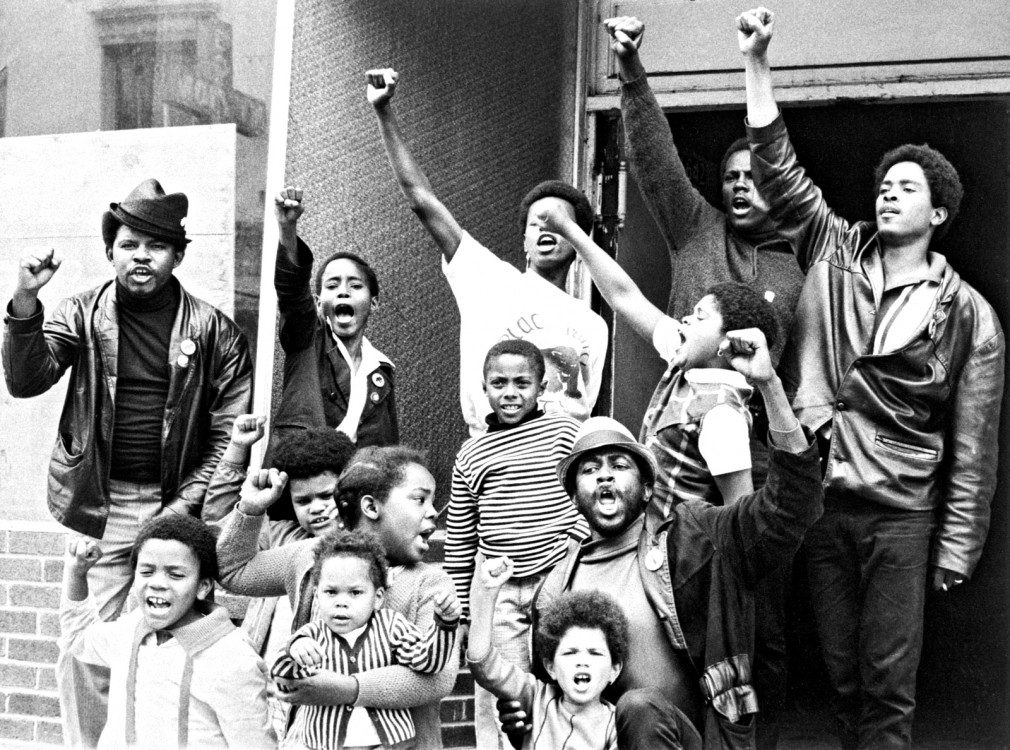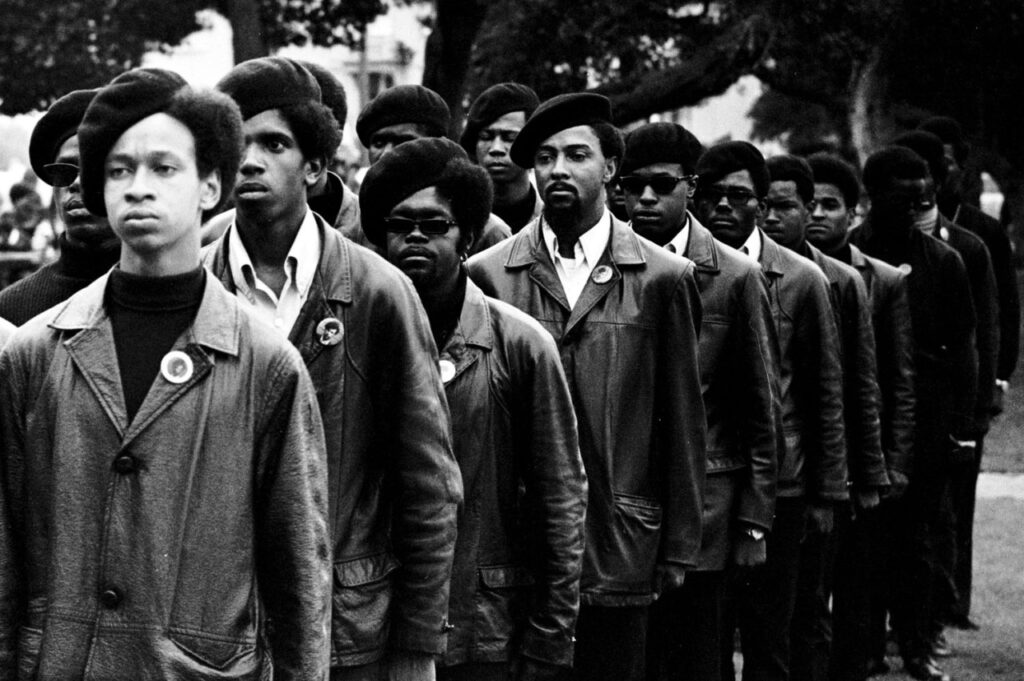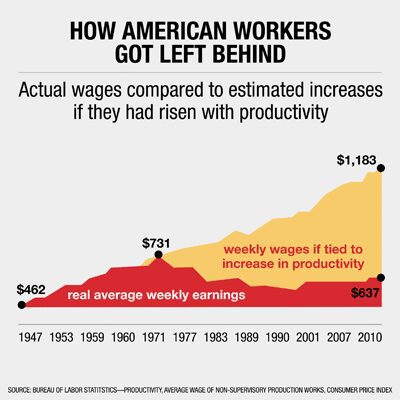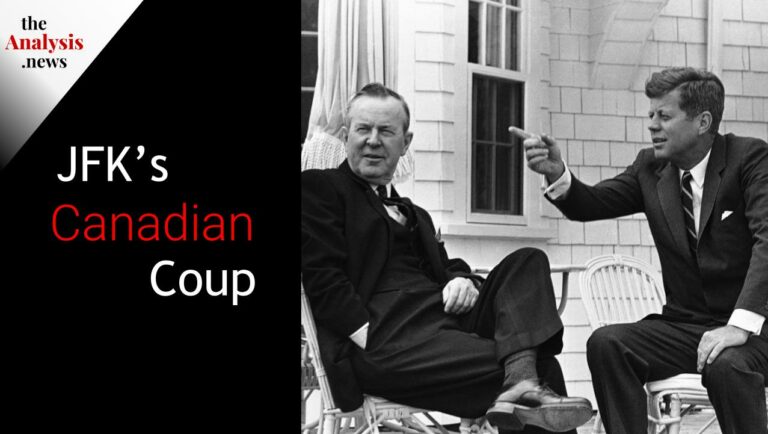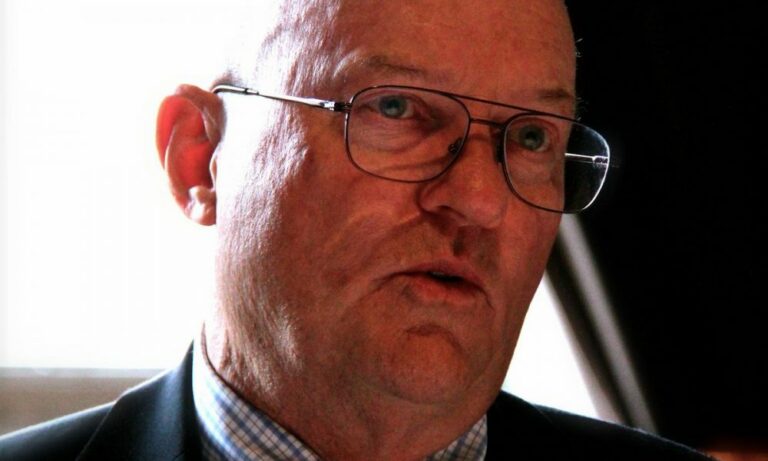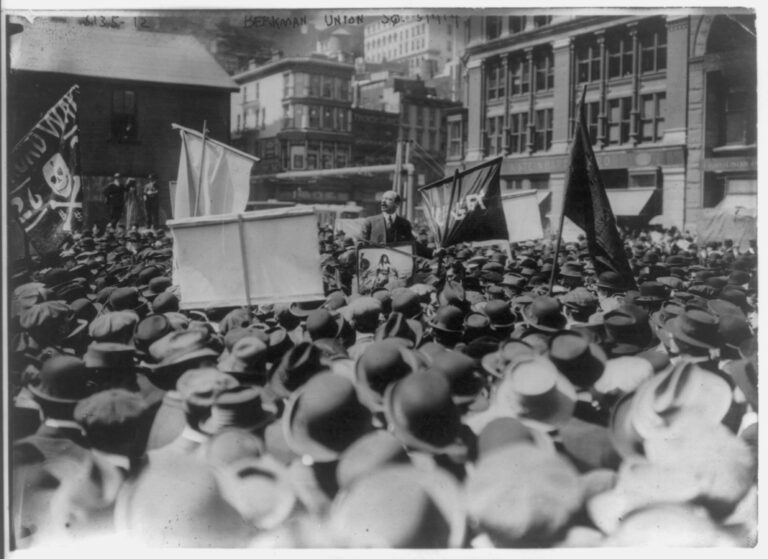This is an episode of Reality Asserts Itself, produced September 9, 2014. Former Black Panther Eddie Conway says, while serving in the military, it dawned on him that the same army that was aiming its guns at the black community was doing the same thing in Vietnam.
PAUL JAY, SENIOR EDITOR, TRNN: Welcome back to Reality Asserts Itself on The Real News Network. Eddie Conway, a former member of the Baltimore chapter of the Black Panther Party, writes in his book Marshall Law: The Life & Times of a Baltimore Black Panther, writing about the death of his brother-in-law in Vietnam about a year after Eddie joined the Army,
“The loss of someone so young and vibrant always strikes at the heart. As youth, we’re so unprepared for death, because we thought we would live forever. None of us could see the deathly shadow that hung so heavily over our generation, yet it was there–Vietnam. Angry and unable to articulate my feelings of loss and grief, I made plans to go. I needed to lash out at someone. This is the dilemma of the man of African descent in this country. Oppression quite naturally creates anger, and all too often that emotion is folded up in the confusion of being American. And then it’s directed not at the oppressor, but at the first available target, who quite often looks like us.”
Now joining us in the studio again is Eddie Conway. Thanks for joining us again.
EDDIE CONWAY, FMR. BLACK PANTHER PARTY MEMBER, BALTIMORE CHAPTER: Okay.
JAY: One more time, Eddie got out of jail after 44 years of being incarcerated for a crime which he has always declared his innocence–and I think just about anyone who’s ever looked at the case has come to the conclusion that he was innocent. And there’s lots of material available. You can go and take a look at the facts on Wikipedia and other places. After 44 years, Eddie is out, and he’s back being an activist in Baltimore again.
So let’s go back to that moment. You’re in the Army. At the end of the last segment, you talked about starting to really–in some ways for the first time–how systemic and structural the racism was in the Army and beginning to resist. You beat up some Klans guys, and such. But then this hits, and you want to go to Vietnam, you want to go fight.
CONWAY: Well, yes. I think–one, I think it was guilt as much as anything else. My brother-in-law had joined the military because I encouraged him to. In fact, it was, like, four of us joined together. And two of us ended up in Europe and two of us ended up in Vietnam. My brother-in-law was one of the people that ended up in Vietnam. Pretty much he was following me. And he went over there, and he wasn’t over there a hot second before he got ambushed and killed. And I always felt responsible for that. I felt like he wouldn’t have been there if he hadn’t have been following me. And then I felt like I had a responsibility to revenge his death. And toward that end–and it’s at the same time, in spite of the racism in the Army, still believing that the communist menace in Vietnam and the threat to Asia was part of America’s noble obligation to make the world safe for democracy.
JAY: We’re, what, about 1965 now?
CONWAY: We’re in ’66.
JAY: Sixty-six.
CONWAY: We’re in ’66.
JAY: So there is a big antiwar movement.
CONWAY: Yes.
JAY: There’s a lot of people speaking out about the injustice of the war and that it’s terrible foreign policy and so on. But you don’t blame U.S. foreign policy. You blame Vietnamese.
CONWAY: I blamed Vietnamese because it was personal, for one thing. Two, there was a tremendous amount of antiwar people in Europe dodging the draft, etc., but most of them were white. And most of the black people that I came in contact with in Europe was either Africans or it was soldiers, and soldiers, in the sense of sergeants or corporals, were dedicated, committed to the military philosophy. So I still hadn’t separated out America’s racism from its racism around the world and its colonialization of people of color all around the world, and I still kind of at that point still felt like–by that time, I was a sergeant, in fact. So I had become part of the military apparatus itself. And that platoon that I had joined a couple of years before, I was actually in charge of it then. And it had–became mostly black also. And so I had a vested interest, so to speak.
JAY: But you see a photograph that starts to really shake you.
CONWAY: Yes. One morning, because I was in charge, I didn’t have to go out to formations. So I would send my guys out. They would go do whatever they needed to do. Because I didn’t bother them, they would actually do it. And I would get–they would bring me breakfast. And so I’m, like, in there, and I’m sitting on the bed, and I’m eating breakfast, and I’m reading the newspaper, and I open the newspaper up–and this is something that still haunts me. I looked at the front of the newspaper. It was the Stars and Stripes. And there in the middle of Newark, New Jersey, is a tank, and that tank has a machine gun on it, and that machine gun is pointed at 25, 30 black women on the corner, and they’re protesting. And I’m sitting there and I’m looking at that, and there’s this little white guy. He’s sitting there with his fingers, like, a half an inch from the trigger of that machine gun. And what’s important about this is that the bullets were like that, were, like, huge bullets, .50 caliber bullets. The gun is driven by electricity. If you press those buttons, it’ll fire 25 or 30 times without anything. You can’t get away from it. It’s like it electrocutes you for a minute. You hit it, and it bounces so much you can’t let it go, even when you’re trying to let go, and it’ll fire off 25, 30 rounds. So all of those women would have been dead on the corner. And I looked at that and I said, dag, my mother could be in that crowd of black women there.
So I read the story, and apparently the National Guard armory had been robbed of some weapons by some black guys, and they went through the black community and locked up every black guy in the community, put them all in a stadium or somewhere, and then they went back and they tore up all the houses in the black community, ripped up the floorboards, ripped in the basements, tore out the walls and whatnot, looking for those guns. And the women were out on the street corner protesting because of the way they violated their houses, not just that the guys were locked up, but they ripped houses up. And then they had to the audacity to put a tank in the middle of the community and point guns at unarmed women like this.
And so I’m sitting there on my bed and I’m looking up at my locker, and there is my uniform, and I have already signed up to go to Vietnam, and I’m thinking, like, well, wait, what’s going on here? Something is seriously wrong. Finally it dawned on me that, okay, you’re in this Army, and you’re promoting this stuff, and they’re using that same Army in the black community to do what you’re getting ready to go into Vietnam to do. Something’s wrong with this picture. I need to get out of the Army and go home and see if I can’t help fix things.
And I never put that uniform back on again. From that day, I actually went and had my reenlistment papers tore up, applied for leave, went on leave, stayed on leave, came back, renewed the leave, and kept doing that until my time was up. And then I had to put that uniform on one last time. I put that uniform on ’cause they wouldn’t let you sign out from the Army without being in the uniform, and there was just no way I could avoid that. So I put that uniform on to sign out. Right? And then I threw it–I don’t even know if it was the Hudson River. I don’t know where I threw it. I threw it in the river up in New York.
JAY: The uniform.
CONWAY: The uniform, right, all of it, right?
But I still wasn’t jaded. I still thought that, okay, there’s problems. Obviously there’s been riots, there’s conflict, there’s fighting, there’s all kinds of stuff going on. This can be fixed. Good people just need to come together, figure out what the problem is, integrate the lunch counter, talk to the police and having them put the dogs away. Whatever. We can make a difference. You know. And I’m 21 now. So I’m still idealistic and I’m still hopeful that, okay, there’s problems, but we can fix them. You know, we just need to figure out how to fix them. And that’s why I started working with CORE and NAACP.
JAY: And what do you do in Baltimore?
CONWAY: In Baltimore, the first thing I did when I got home, I went to Johns Hopkins and I took a job at Johns Hopkins. At that time, I was–actually, I was a PA by then, because I had been trained and all that kind of stuff, right? But I end up as the operating room technician at Johns Hopkins. So I went to work for Johns Hopkins. And then I started checking to find out what was going on, and what was actually happening in the city was that we were trying to get white-collar jobs. There’s a tremendous black workforce, but probably 99 percent of them were in blue-collar jobs. And we wanted some of those white-collar jobs, because what we discovered was even after the civil rights bill passed and all of the places were integrated and we were allowed to send our children to college and all those things, we couldn’t afford it on the blue-collar salaries. We couldn’t afford to go down into the restaurant and eat.
JAY: While you’re at Hopkins, there’s a surgery that takes place–
CONWAY: Oh god.
JAY: –that infuriates you.
CONWAY: Yes. And it really infuriated me because by being a medic, by being someone that understood–you know, I worked in hospitals while I was in the military. I understood operating rooms, the procedure, whatnot. There was this particular case where this doctor actually performed a mastectomy–that’s the removal of both breasts from a woman. It’s–at that time–this is ’68 now–at that time, it was a three-hour operation. I don’t know what kind of time it takes now to do it, but it was dictated by the scalpel, the technology, everything else. It in general takes three hours. He had a golf game to go to in an hour’s time, and he literally butchered that woman on the table while I was in the operating room.
JAY: A black woman.
CONWAY: Black woman in her 50s. And he sawed off her breasts, pretty much. And all the–because he was the head surgeon, he had surgeons, he had minor surgeons, he had–there were head nurses, there was anesthesiologists, etc., there was a resident there, you know, people being trained. So there was, like, ten people in the operating room. And what I didn’t understand at the time, because I’m still kind of, like, not really picking up on this, is I was the only black person in the operating room. I didn’t realize it at the time. I mean, we were in there doing the job. You know, everybody had their job.
JAY: You and the woman on the table.
CONWAY: Yeah, me–oh, that’s right. That’s right. I didn’t even consider that. There was 11 people in the operating room, the woman that got killed.
JAY: Yeah, we should say that she died not long after this.
CONWAY: Yeah, yeah, yeah. Well, she got killed. He cut her breasts off and she bled to death. And the whole time, there was a mild discussion going on between the junior surgeons and the chief surgeon and the resident, and basically the discussion was going on like, oh, we’re losing a lot of fluid, it’s not cauterizing, because at the time you used an electrical scalpel and you cut and it burned both sides, and it not just cut an area, but it also healed or burned or sealed that area if you do it slow enough, right?
JAY: But did it so fast it didn’t cauterize.
CONWAY: But he was doing it so fast it wasn’t cauterizing in the blood.
JAY: And this is ’cause he wants to go to a golf game.
CONWAY: He wanted to go to the golf game, right? And even hearing that and seeing that and all of that stuff, it was like I was infuriated about it, but I still–it still didn’t trigger any kind of response from me. It was only after the operation and I knew she had died and he was out in the hallway talking to her daughter and her husband when I came by–I had to go–because I was the operating room technician, I was the person that brought the people in and prepared them and set them up, and so I had to go get the next person. And I don’t even know if it was for that room. It was for probably another room, ’cause that room wasn’t clean. And as I was on my way to get the next person, I came past–I had to go pass through the waiting room, and he’s standing out there and he’s telling this woman and her husband that he did all he could to save her life. And I went temporarily insane. I have to admit to that.
JAY: Well, in the book you mentioned that behind his back he’s holding his golf–his gloves, his golf gloves.
CONWAY: Yeah. You know. So I’m passing behind him when he’s saying it, and I’m seeing him. He’s got his golf shoes on and he’s got his golf gloves. And I’m like, you lying mother–. You know. And I just went off. And I end up hitting him and I knocked him down. And, of course, you know, they call security on me, you know, crazy black man loose in the hospital. I had to end up going to the administration. But I’m like, look, I was in there. He killed her. You all need to charge him. It’s murder. I’m not letting this go. You’re all fixing this. And I called The Afro, I called the–you know, because I knew he should have been in jail. And then everybody’s like, no, no, no, no, no. Finally, they–.
JAY: What did the The Afro do?
CONWAY: Well, they said that the only way we could–.
JAY: The Afro still is, but at that time particularly, was a big newspaper for the African-American community.
CONWAY: Yeah, it was probably the third paper in the city at the time, right? Basically they said to me it’s like, look, you know, you’re just a technician. You don’t know what doctors know. You can’t understand what was motivating, driving this whole operation. You need a doctor to look at the records and to verify what you’re saying. So I didn’t have a problem with that, because I’m like, okay, any doctor that’ll look at the record will know that this was murder. You know, all the people in the room knew that. You know.
But initially what I did was I went to try to talk to the people in the room, and it was then that it dawned on me that they were all white, except for one nurse, which was a Korean nurse. And I said, what’s up with this? I didn’t even realize I was black, I guess. I mean, in all fairness, I didn’t realize there was a problem there. And I talked to the Korean nurse, and she’s like, no, I can’t get involved. I don’t–.
JAY: Nobody would say anything.
CONWAY: It’s the law of silence. You don’t say anything about the surgeons. You don’t say anything about the big doctors. They’re the moneymakers.
JAY: Was The Afro saying you’re only a technician? Or The Afro was saying, you’re black you’d better find somebody white who can say something?
CONWAY: No, they were saying I was only a technician and I needed a doctor to verify, to look at the records and to verify. Well, I didn’t really, at that time. I knew it was murder and I knew how much time it’d take for one of those kind of operations, right?
So I went throughout the hospital looking for a black doctor, because from the operating room it was clear to me none of the white doctors were going to say anything at all. So I go to–and perhaps this was wrong, but this was my personal experience–two black doctors at Johns Hopkins at that time. One was down in pathology. And right away he told me, don’t get involved, it happens all the time, these bodies come through here, forget it, just go on about your business. At the time I had, like, a GI Bill, ’cause I’d been in the Army, I got out, so I was eligible to go to medical school. I was at the time, like, a PA, so I was going to go to Johns Hopkins, to their medical school. That was my plan, to get into John Hopkins, getting into their school. The tuition was half-price because I was an employee, the Army was going to pay for it, etc. So I’m looking at a career.
JAY: But you don’t find a black doctor who will speak out.
CONWAY: So I leave this guy, ’cause he tells me, don’t get involved, don’t do it, don’t mess yourself up, this is your career, go do whatever you need to do to–. You know. And I’m like, no, this is not right; I’m not going to go for this. So I go, and, of course, I’m asking questions. And finally they say, well, there’s a black doctor up in hematology, I think it was, the blood lab. And so I go up to the lab and I open the door, and here’s this black guy in the white smock with coffee and tea and sugar and whatnot.
JAY: And he’s the doctor.
CONWAY: He’s the doctor. And the people sitting around the lab, some of them are just technicians.
JAY: And he’s serving them.
CONWAY: He’s serving them. And I knew it was–that was the ballgame for me, right? So I tried to talk to him, and he wasn’t trying to hear it all, and I can’t get involved, and so on, so on, so, I’m doing my residency, blah blah blah. You know. So I just went on and I said, well, okay, and I couldn’t raise enough hell. So they offered me–what they said was, like, you can go to University of Maryland, we’ll send you down to University of Maryland.
JAY: They didn’t want to fire you for hitting a doctor in the face?
CONWAY: Yeah, yeah, they didn’t want it to be an incident.
JAY: ‘Cause they knew what might [crosstalk]
CONWAY: Yeah, because they knew I was trying to make it into–. And I wasn’t trying to make it into an incident. I was incensed that he had killed this woman. You know. I wasn’t looking for an incident. But it was there. It just–it happened, right?
JAY: Did the family knew how incensed you were?
CONWAY: I told the father–well, her husband, and I told the daughter. They never did anything. They–I guess they was compensated in some kind of way by Johns Hopkins. And I wouldn’t take the job down at the University of Maryland. I just went on and I said, I can’t be in this profession, because what just happened is not anything that I could allow to happen around me. And so I actually left.
But I left basically–I went and I said, well, okay, I need to go work somewhere else. And so I was working with CORE and them anyway, so I said, well, okay, I’ll go and help integrate the Sparrow’s Point fire department. And then I left and went there.
JAY: And you become a fireman.
CONWAY: I became a fireman.
JAY: And you become an organizer.
CONWAY: At that time I became a organizer also.
JAY: Okay, in the next segment of our interview, we’re going to talk more with Eddie Conway. He’s now becoming not just enraged at what happened at Hopkins, but he’s going to put that rage into becoming a much more conscious organizer. So please join us for the continuation of this series on Reality Asserts Itself.
Never miss another story
Subscribe to theAnalysis.news – Newsletter
“Marshall “Eddie” Conway was an American black nationalist who was a leading member of the Baltimore chapter of the Black Panther Party who in 1971 was convicted of murder of a police officer a year earlier, in a trial with many irregularities.”

